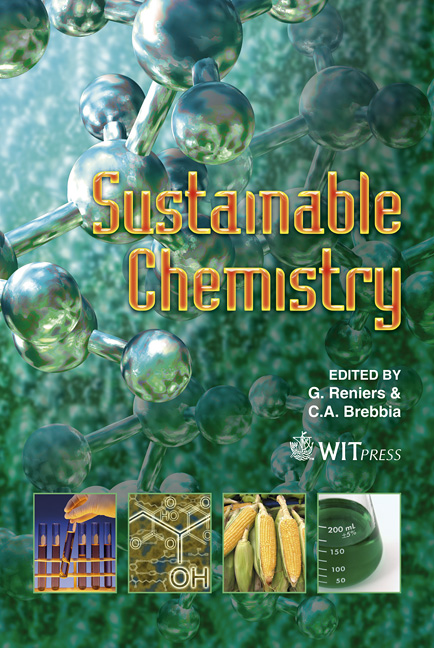Interests And Challenges Of Organic Solvent Nanofiltration For Sustainable Chemistry: The Case Of Homogeneous Catalysis Of Metathesis
Price
Free (open access)
Transaction
Volume
154
Pages
12
Page Range
141 - 152
Published
2011
Size
478 kb
Paper DOI
10.2495/CHEM110141
Copyright
WIT Press
Author(s)
M. Rabiller-Baudry, G. Nasser, D. Delaunay, A. Keraani, T. Renouard, D. Roizard, H. Ben Soltane, C. Fischmeister, J. L. Couturier & D. Dhaler
Abstract
The development of chemical reactions catalysed by homogeneous organometallic complexes has allowed a significant breakthrough in synthesis chemistry, but now research axes must integrate catalysts recycling at the early stage of their conception. Catalyst recycling by nanofiltration in organic solvent (OSN) may represent an innovative route since this separation process at a molecular level is a low energy consumer. Challenges for OSN are membrane stability in organic solvents and the mastering of filtration conditions. Molecular engineering of catalysts based on slight structural modifications is also proposed to associate activity and high retention for OSN recycling. This paper deals with the integration of OSN within the homogeneous catalytic olefin metathesis reaction. Keywords: nanofiltration, homogeneous catalysts, catalyst recycling, membrane material, olefin metathesis. 1 Introduction Catalyzed transformations are recommended in the 12 principles of green chemistry as they can increase reactions efficiency and reduce the production of wastes by enabling selective and atom economy transformations [1]. However, it
Keywords
nanofiltration, homogeneous catalysts, catalyst recycling, membrane material, olefin metathesis





